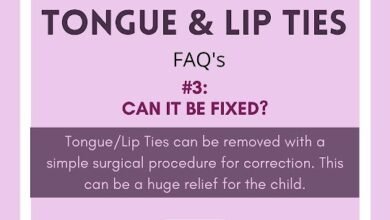Health Insurance for Living Abroad: A Complete Guide for Expats

The excitement of moving to a new country can quickly turn into anxiety when you start thinking about your healthcare. What if you get sick? What if there’s an accident? These thoughts keep many future expats up at night, wondering if they’re making the right choice to move overseas.
Getting proper health insurance for living abroad isn’t something you can put off until later. It’s one of those decisions that could make or break your entire international experience. The wrong choice might leave you facing devastating medical bills or struggling to get decent care when you need it most.
Why Your Home Insurance Won’t Cut It
Your domestic health plan probably covers very little once you cross international borders. What is that basic travel insurance policy you picked up for vacations? It’s designed for short trips, not someone building a new life overseas.
Some people figure they’ll just pay out of pocket if something happens. This approach works fine until it doesn’t. In many countries, a broken leg can cost more than most people make in several months. Emergency surgery can wipe out years of savings in a single day.
The math is pretty straightforward. You can pay for insurance now or gamble with potentially catastrophic expenses later.
Local vs International Coverage
Going Local
Buying insurance in your new country makes sense for many expats. Local plans usually cost less and give you direct access to nearby doctors and hospitals. You won’t deal with international claim headaches, and many countries require local coverage for visa purposes anyway.
The challenge is that healthcare quality isn’t consistent worldwide. Some places have fantastic public systems that rival anything back home. Others rely on private care that might not meet your expectations or standards.
International Plans
Global coverage follows you wherever life takes you. These plans often include multiple countries, evacuation benefits, and access to international medical networks. Many expats sleep better knowing they have consistent coverage standards no matter where they end up.
The price tag reflects this peace of mind. International plans typically cost significantly more, and you might face more paperwork when filing claims.
Mixing Both Approaches
Savvy expats sometimes combine local basic coverage with international supplements. This strategy can provide affordable daily care locally while maintaining premium services and evacuation coverage for serious situations.
Critical Coverage You Must Have
Emergency Care
This tops the list for obvious reasons. Look for plans for emergency room visits, surgery, and hospital stays without approval. Fighting with insurance companies while dealing with a medical emergency is the last thing anyone needs.
Prescription Coverage
Your regular medications might not exist in your new country, or they could cost a fortune. Quality international coverage includes prescription benefits and sometimes covers alternative medications when your usual drugs aren’t available locally.
Mental Health Support
Moving abroad affects people in unexpected ways. Culture shock hits harder than most anticipate. Isolation can creep up on anyone. Stress levels often spike during the adjustment period. Plans including mental health coverage and telehealth services can literally save lives.
Family Planning
Maternity coverage becomes essential if you consider starting or expanding your family abroad. Some countries offer excellent public maternity services, while others require expensive private care that can cost tens of thousands of dollars.
See also: Balancing Beauty and Function: How Pond Fountains Improve Water Health
Medical Evacuation Coverage
This might sound overly dramatic, but medical evacuation happens more often than people realize. If you’re living somewhere with limited medical facilities and develop a serious condition, transportation to a country with better care could save your life.
Real evacuation coverage goes beyond just paying for transport. It includes medical staff during the journey and coordination with receiving hospitals. Without insurance, this service can easily exceed $100,000.
Dealing with Pre-existing Conditions
Many international health plans exclude pre-existing conditions or impose waiting periods before coverage starts. If you have ongoing health issues, research this aspect carefully before moving.
Some countries require medical exams or detailed health declarations for local insurance. Being honest about your medical history prevents claim denials but might also affect your premiums or eligibility.
Smart Shopping Strategies
Start your research at least three months before moving. This timeline gives you space to compare options, understand local requirements, and complete any required medical exams.
Connect with expat communities in your destination country. Online forums and local expat groups offer real-world insights about which insurers pay claims quickly and which create endless bureaucratic nightmares.
Your destination matters enormously. Healthcare quality and costs vary wildly between countries; your insurance needs should reflect these differences.
Don’t assume price equals quality in either direction. Some affordable local plans provide excellent coverage, while some expensive international plans have frustrating gaps and limitations.
Warning Signs to Watch For
Be suspicious of plans with extremely low premiums but sky-high deductibles. These might look attractive initially, but you’ll pay most costs out of pocket when you need care.
Watch for plans that exclude coverage in your home country. You might want some protection for visits home or if you decide to move back permanently.
Read carefully about coverage territories. Some “international” plans only work in specific regions or exclude certain countries entirely.
Making the Final Choice
The best health insurance for living abroad depends on your situation, where you’re moving, and how much risk you’re comfortable taking. Young, healthy people moving to countries with solid public healthcare might choose very different coverage than families relocating somewhere with expensive private medical systems.
Think about your long-term plans too. If you’re moving permanently, local coverage often makes more sense. If you plan to move between countries or eventually return home, international coverage might justify the extra expense.
The right insurance plan lets you focus on building your new life instead of worrying about medical disasters that could destroy everything you’ve worked toward. Your health and financial security shouldn’t become casualties of your international adventure.
Take time to understand your options and choose coverage that protects both your well-being and your dreams of life abroad.




